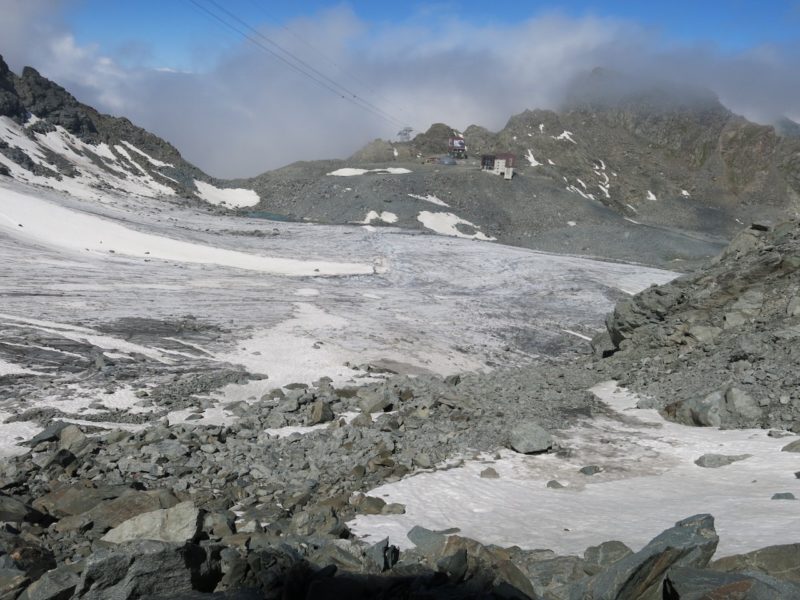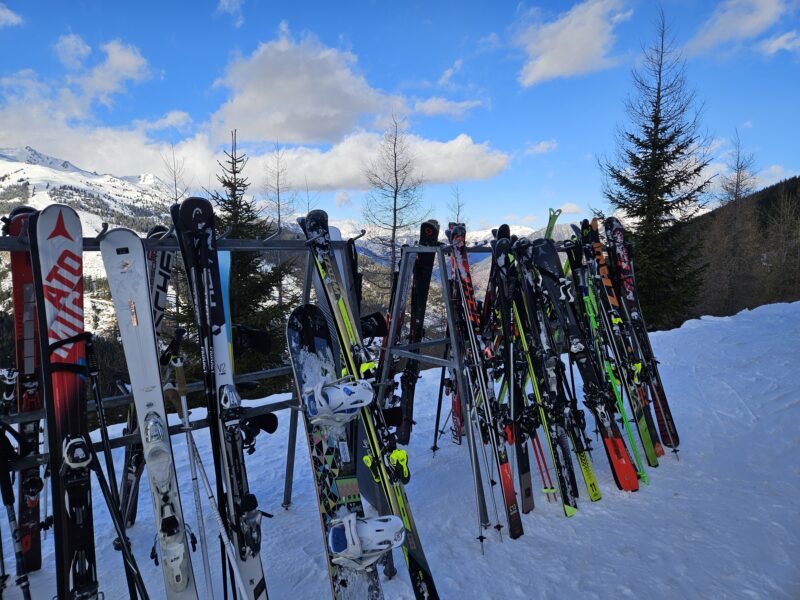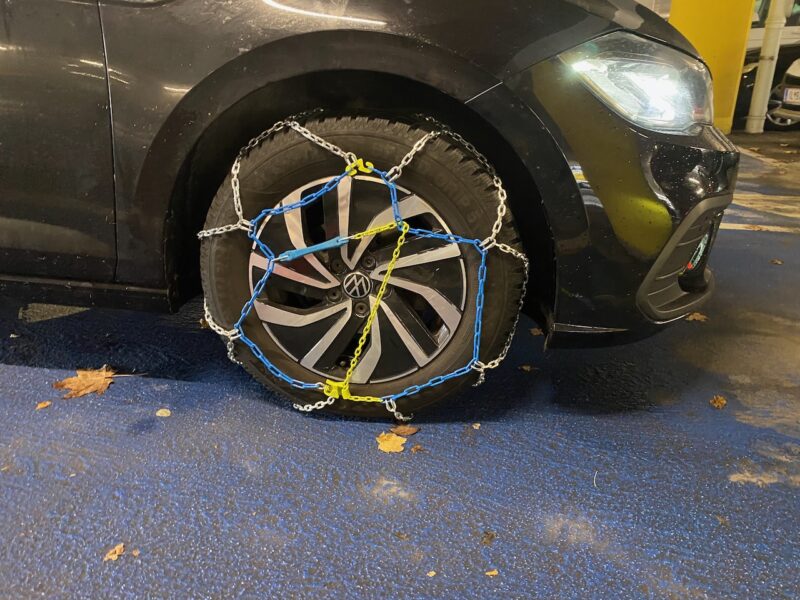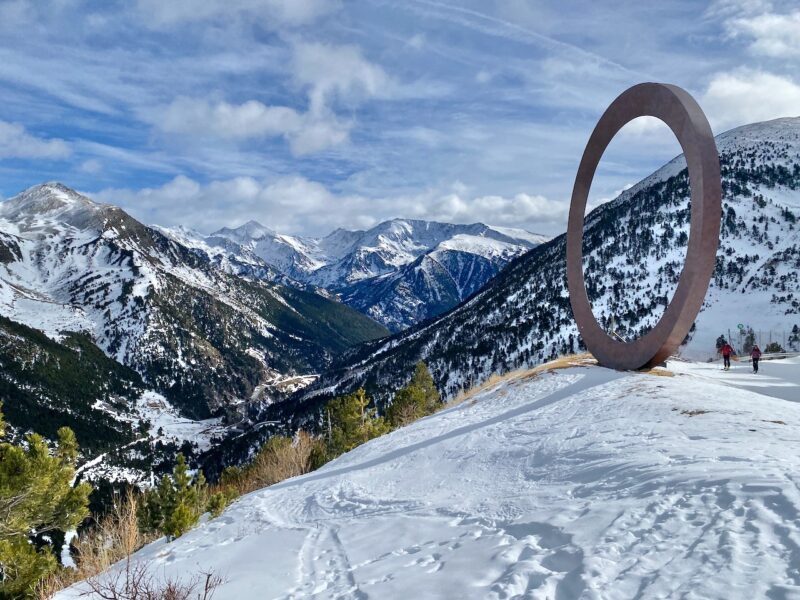Skiing, Snowboarding and Working in the EU After January 1st
12th December 2020
Last modified on May 13th, 2021
Whether there is a deal between the UK and the EU, or whether there isn’t, travel and working will look very different in three weeks. The free movement of labour is ending and for many UK nationals working in the mountains will be a thing of the past.
The deadline for talks between the UK and the EU has been extended.
A joint statement has just been released from Prime Minister Boris Johnson and EU Commission President Ursula von der Leyen, saying talks will continue in Brussels.
Last week the PM, Boris Johnson, has said that a no-deal Brexit was now “very, very likely”.
The European Commission President, Ursula von der Leyen, said that the two sides were still “apart on fundamental issues”.
Come what may, visiting the EU skiing countries will be different this winter.
There will also be changes visiting the non-EU skiing countries of Switzerland, Andorra and Norway as they have arrangements with the EU/Schengen and follow similar regulations.
Heading to an EU Country
As things stand skiers and snowboarders will not actually be able to enter any EU country after January 1st due to coronavirus restrictions.
At the moment UK nationals can cross EU borders as the transition period means we are treated as part of the EU.
The only non-EU countries that are exempted from the Covid-19 restrictions are those with very low rates of infection, such as New Zealand.
People can enter the EU for “essential reasons’ but going skiing or snowboarding is not classed as essential.
The EU as a block could choose to exempt the UK from these rules, and it is thought this will happen if there is a trade deal.
If there is not a trade deal, and both sides say that is the most likely outcome, then the risk of a ban is higher.
Individual EU countries are able to exempt UK citizens from this ban and create their own “travel corridor”.
“It is too early to say what restrictions might be in place on 1 January, given the uncertain nature of the pandemic, but we know that UK travellers are hugely important to a number of EU destinations,” said a statement from the Association of British Travel Agents.
As a tourist, UK citizens will only be allowed into a EU country/member of Schengen for 90- days out of a 180-day period.
Anyone who is considering a long-stay in a ski county in the EU this winter will need to do the maths carefully, especially if they wish to go somewhere else in Europe during the summer.
They might simply have run out of days.
The EU 90-day limit is for the whole of the European Union, not 90 days per country.
A British national with a chalet or apartment in an EU country in the Alps or Pyrenees is expected to be subject to the same rules as a British resident of the UK when it comes to spending time at their second home.
Each country many have other visas available.
Those who breach the 90-day rule by staying longer could be subject to a fine and/or a ban from the Schengen area.
Different countries impose different penalties and there is normally a three-day grace period.
At The Border
Anyone going skiing, once the resorts have opened in January and if Covid-19 border rules have been relaxed, will need to ensure they have 6-months on their passport and it must be less than 10-years old.
They may have to provide proof of a return journey at the customs point and to demonstrate they have sufficient funds for their stay.
UK citizens will no longer be able to use EU fast-track passport control and customs lanes.
By law border officials are required to ask non-EU travellers extra questions, so people may be asked questions on arrival.
Tourists will be able to travel to most EU countries – plus Switzerland, Norway, Iceland and Liechtenstein – without a visa.
You may need a visa or permit to stay for longer, to work or study, or for business travel.
From 2022 onwards UK nationals will have to pay for a visa-waiver scheme in order to visit many European countries.
Health Insurance
The European Health Insurance Card, EHIC, will no longer be valid.
It entitled about 27 million British citizens to state-provided medical treatment if they fell ill or had an accident in EU countries, as well as a number of others.
For example, it was recognised in Switzerland, that is not a member of the EU.
Switzerland will now not recognise it.
The EHIC covered pre-existing medical conditions, but some travel insurance policies don’t.
It is vital for people to check their policies and ensure they have the right level of cover.
However pensioners in the EU who are S1 holders and students studying in an EU country can continue to use them but they need to apply for a new card.
Mobile Phone Charges
The guarantee of free roaming throughout the EU, Iceland, Liechtenstein and Norway will end.
The four main UK operators have said they have no plans to reintroduce roaming fees.
The government has passed laws to protect customers with a £45-a-month cap on using mobile data abroad – then you must opt-in to use more.
Plus customers must be informed when they’ve reached 80% and 100% of their data allowance.
Driving in the EU
You will need to carry your driving licence, log book (V5C) and valid insurance documents.
A Green Card will be needed and it can be obtained, usually free of charge, from your insurer.
You will also need a GB sticker correctly displayed on your vehicle.
Bringing Goods Back to the UK
With the UK in the EU there were no limits on the value of goods people could bring back, unless you planned to sell them.
There are now limits.
For alcohol, the limits are: 42 litres of beer, 4 litres of spirits or 9 litres of sparkling wine and 18 litres of still wine.
People can bring in bring in 200 duty-free cigarettes.
There is a limit of €430 – roughly £400 – for all other goods.
Working in the Mountains
The free movement of labour ends and that means many UK nationals will not be able to work in ski resorts in EU countries.
Thousands of British seasonal workers, such as chalet hosts, resort managers, nannies, hotel and bar staff are affected.
It had looked as if they would be allowed to work the whole ski season, despite Brexit.
But that relied on them being in place and working in an EU country before 1st January.
Many have not gone due to resorts being closed and Covid-19 restrictions.
PlanetSKI understands that discussions are continuing to see if offers of employment, or contracts to start work later in the season that are signed before the deadline will be acceptable.
There are efforts underway to try to have some sort of waiver for young people, similar to Canada where people under 30 can obtain a visa to work on the lifts, in the bars or as a ski instructor.
That is not in place and may be some way off.
There is also doubt over the recognition of qualifications, especially with ski instructors.
The UK’s Department for Business, Energy and Industrial Strategy, has announced it is withdrawing from the scheme that allows for mutual recognition of qualifications.
“The UK Government is still negotiating a deal and we still don’t know if mutual recognition of qualifications will feature in it, or indeed if there’s a deal going to be made at all,” the head of the British Assoicion of Snowsport Instructors, BASI, Jim Lister, said in a statement to PlanetSKI.
“If our worse fears become true and the delegated act is revoked, we may lose our access to the Common Training Test agreement. Without it, despite the assurances of the UK government, there will be no formal & legal mechanism in place to ensure our qualification.”
See here for an earlier story on PlanetSKI with all the details:
And this personal account from ski instructor, Rob Greatbach.
He has spent 10 years working towards his goal of qualifying as a top level ski instructor to teach in France.
Covid-19 and Brexit could well have just conspired to put an end to his dream.
For anyone doing businesses trading with the EU expect to have to complete a lot more paperwork.
Multiple Holiday Trips to Europe
As we mentioned earlier UK citizens will only be able to spend 90-days in EU countries over a rolling 180-day period.
The 90-day limit is for the whole European Union bloc, not 90 days per country.
Pretty much all the ski nations in Europe are in the EU.
Austria, Bulgaria, Croatia, Czech Republic, Finland, France, Germany, Greece, Italy, Poland, Romania, Slovakia, Slovenia, Spain and Sweden.
Switzerland and Norway are not in the EU, but they are part of Schengen that has a similar policy of tourists being allowed to stay for 90-days out of 180.
Andorra is not in the EU or part of the Schengen area but also has a 90-day rule.
Some countries may have ‘Long Stay Tourist Visas’ available and other options.
France offers one to cover periods from 4 to 6 months for tourists.
For young people and retired people that have the time to travel extensively in Europe each year, Brexit may limit their opportunities.










